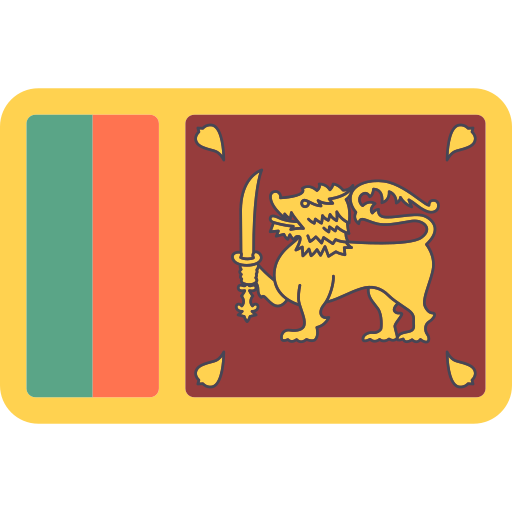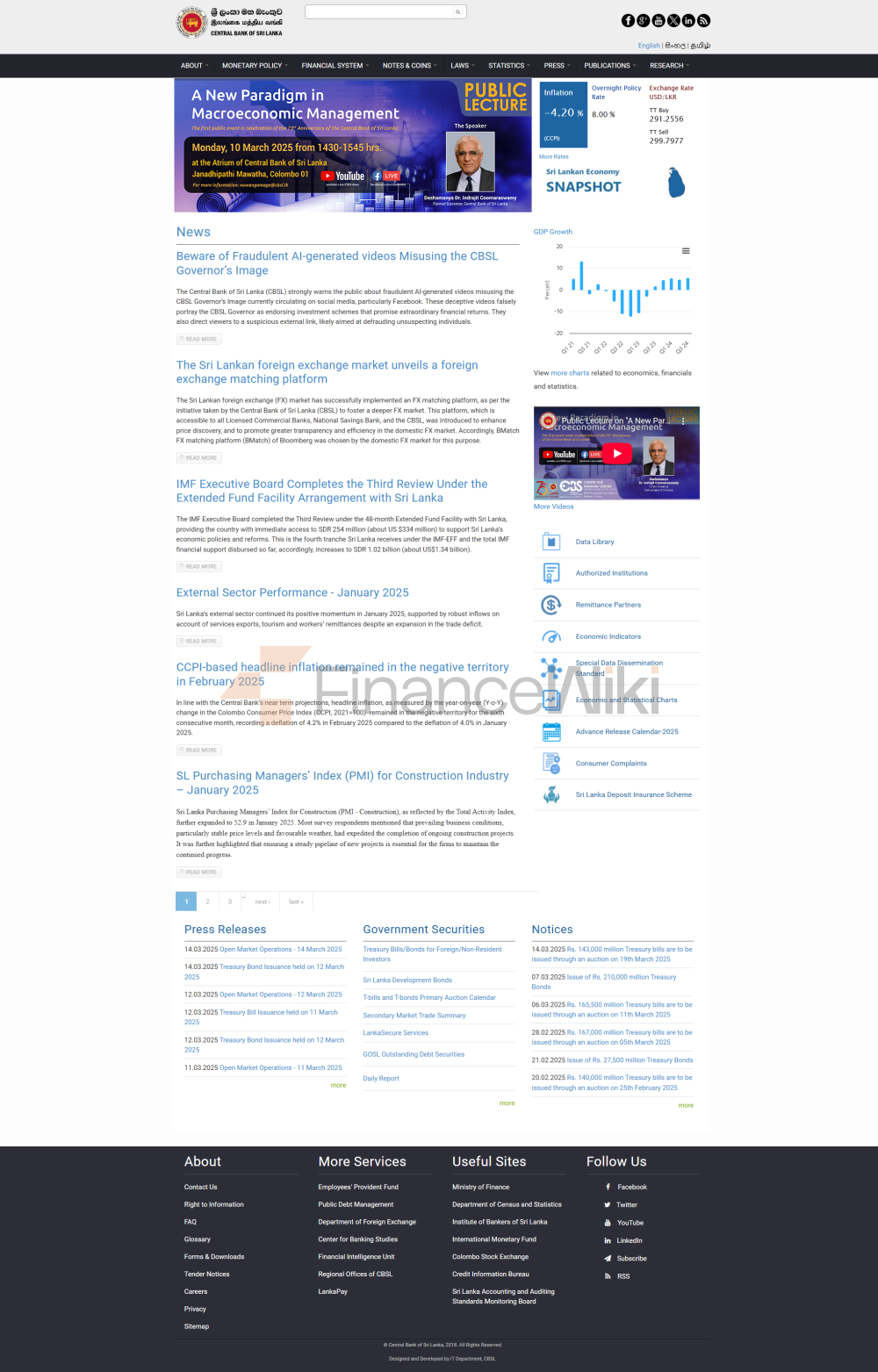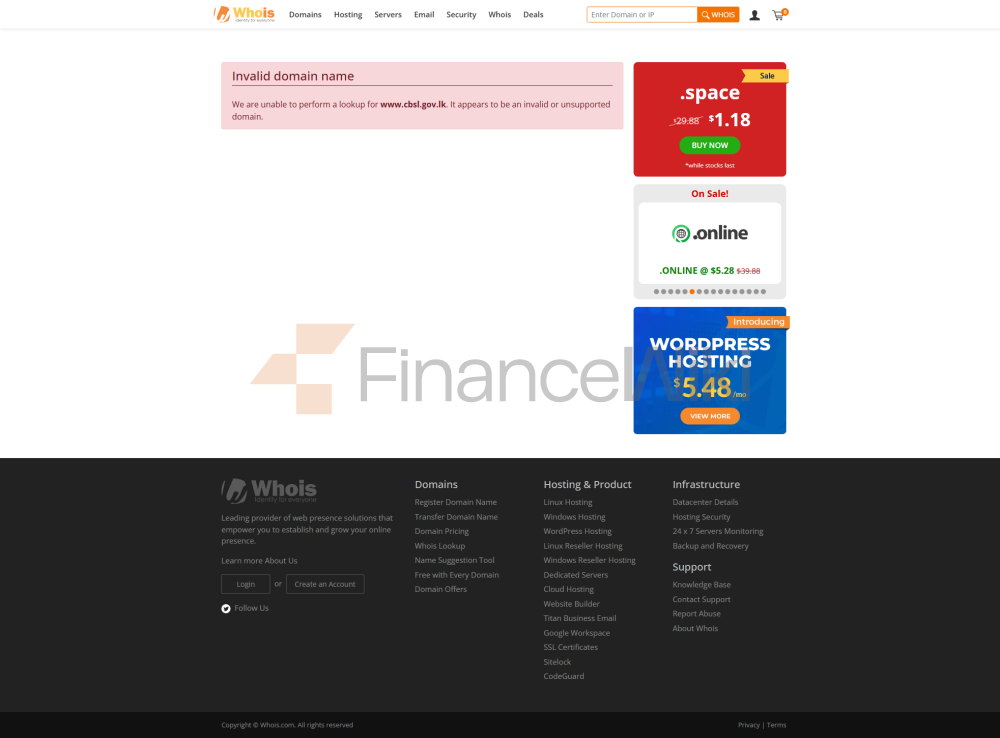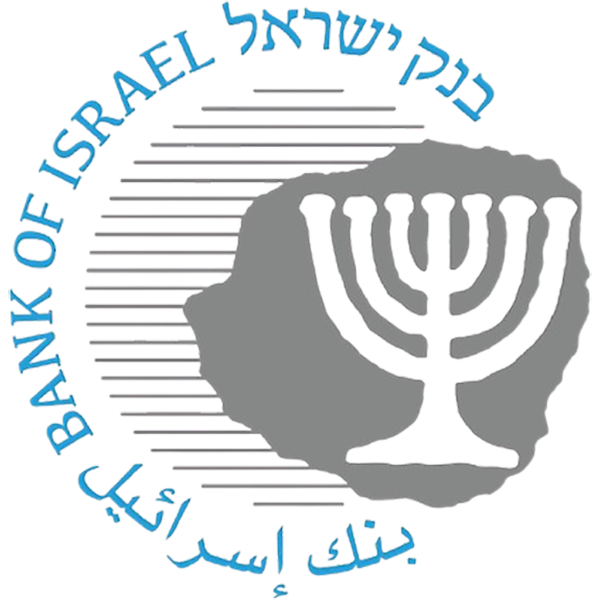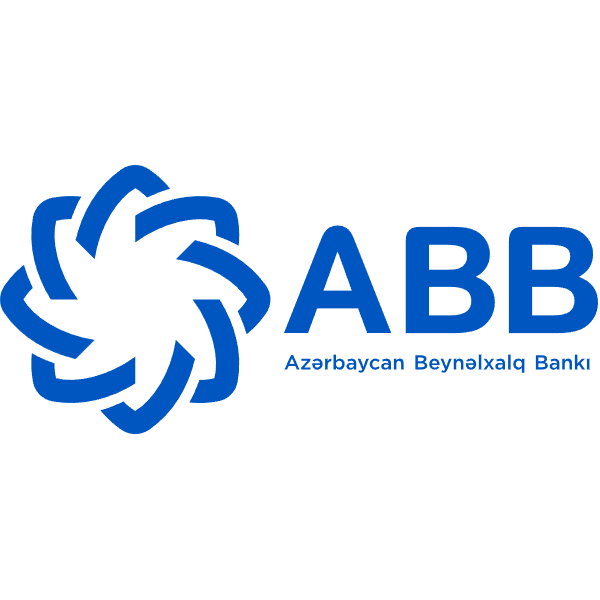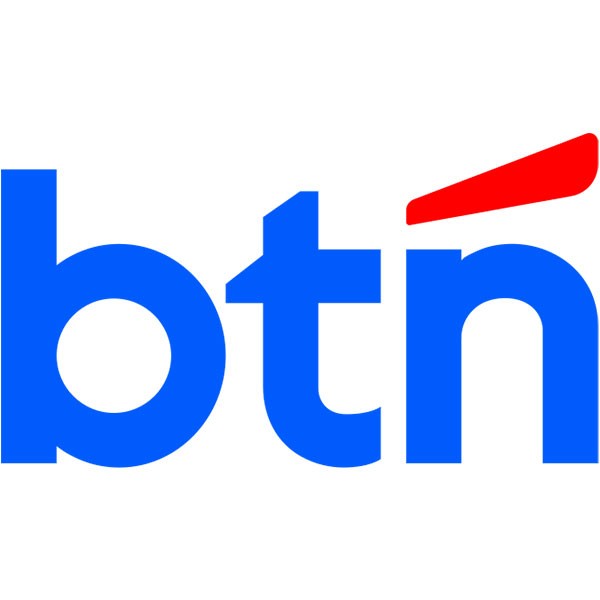Die Zentralbank von Sri Lanka (CBSL, Singhalesisch: ĄĄ˘ ˘ ˘, Sri Lanka Maha Bankuwa) ist die höchste Behörde für die Währungsverwaltung in Sri Lanka. Sie wurde 1950 durch das Währungsgesetz Nr. 58 von 1949 (MLA) gegründet und ist eine halbautonome Einrichtung, die von einem fünfköpfigen Währungsrat geleitet wird. Nach der Änderung des MLA im Dezember 2002 wird sie von einem fünfköpfigen Währungsrat geleitet, dem der Gouverneur als Vorsitzender und das Ministerium für Finanzen und Planung als Sekretär angehören. Die übrigen drei Mitglieder werden vom Präsidenten Sri Lankas auf Empfehlung des Finanzministers und mit Zustimmung des Verfassungsrates ernannt.
Geschichte
Im Einklang mit der Entwicklung des Wirtschafts- und Finanzsystems nach der Unabhängigkeit im Jahr 1948 gründete die Regierung Sri Lankas nach der Unabhängigkeit (damals Ceylon genannt) die Zentralbank von Ceylon, um das geldpolitische System und die Entwicklung des Finanzsektors aufrechtzuerhalten sowie das Wirtschaftswachstum zu unterstützen und zu fördern.
Vor der Gründung der Zentralbank fungierte das Currency Board System, das durch die Notes Ordinance Nr. 32 von 1884 eingerichtet wurde, als Währungsbehörde des Landes. Obwohl seine Funktionen sehr begrenzt waren, wurde das System als nicht geeignet angesehen.
Im Juli 1948 wurde John Exeter, ein amerikanischer Wirtschaftswissenschaftler bei der Federal Reserve der Vereinigten Staaten, auf der Suche nach technischem Fachwissen bei der Einrichtung einer Zentralbank aus den Vereinigten Staaten mit der Aufgabe betraut.
Ein externer Bericht über die Gründe und den rechtlichen Rahmen der Zentralbank wurde dem Repräsentantenhaus der Vereinigten Staaten im November 1949 vorgelegt. Ein Gesetzentwurf mit erläuternden Kommentaren wurde ebenfalls als zweiter Teil des Berichts beigefügt und zusammen vorgelegt. Der Gesetzentwurf wurde am 25. November 1949 vom Repräsentantenhaus als Währungsgesetz Nr. 58 von 1949 verabschiedet, das die Voraussetzungen für die Einrichtung der Zentralbank von Ceylon und die Beendigung des Currency-Board-Systems schuf.
Die Zentralbank von Ceylon wurde durch das Currency Act Nr. 58 von 1949 (MLA) gegründet und nahm ihre Tätigkeit am 28. August 1950 auf. Sie wurde 1985 in Central Bank of Sri Lanka (CBSL) umbenannt. Die Ziele der Zentralbank wurden in den Prioritäten der Aktion 1949 festgelegt, um für die Stabilität des Nennwerts und des Wechselkurses der Währung Sri Lankas zu sorgen sowie die inländische Produktion, die Beschäftigung und das Realeinkommen zu fördern und zu erhalten.
Mit den raschen Veränderungen und Trends in den internationalen Finanzmärkten sowie der wirtschaftlichen Liberalisierung und den bedeutenden Fortschritten in der Informationstechnologie startete die Zentralbank im Jahr 2000 das Modernisierungsprogramm und passte ihre Ziele entsprechend an, indem sie sie auf zwei Kernziele reduzierte:
- Aufrechterhaltung der Wirtschafts- und Preisstabilität
- Aufrechterhaltung der Stabilität des Finanzsystems
Funktionen
Durchführung der Geldpolitik
Verantwortlich für die Umsetzung der Geldpolitik Sri Lankas, wobei es in erster Linie um die Festlegung politischer Interessen geht Kurse und Liquiditätsmanagement in der Wirtschaft.
Umsetzung der Wechselkurspolitik
Seit dem 23. Januar 2001 hat Sri Lanka eine unabhängige Politik des freien Wechselkurses eingeführt. Der Wechselkurs des Landes wird durch das Angebot und die Nachfrage nach Devisen in der Wirtschaft bestimmt. Die Zentralbank behält sich auch das Recht vor, durch Angebot und Absorption von Devisen in den inländischen Devisenmarkt einzugreifen, um übermäßige kurzfristige Schwankungen des Wechselkurses zu begrenzen. Darüber hinaus muss das Monetary Board gemäß dem Currency Act geeignete Richtlinien erlassen.
Management of Official International Reserves
Gemäß dem Currency Act (MLA) ist die CBSL für die Verwaltung der offiziellen Devisenreserven des Landes verantwortlich, wobei der Schwerpunkt auf dem Ziel der "Verbesserung von Sicherheit, Liquidität und Rendite" liegt.
Überwachung des Finanzsystems
Überwachung und Beaufsichtigung des gesamten Finanzsystems zur Überwachung und Begrenzung von Systemrisiken, die zu Finanz- und Wirtschaftskrisen führen können.
Zulassung, Überwachung und Beaufsichtigung von Banken und ausgewählten Gruppen von Nicht-Bank-Finanzinstituten
Verantwortlich für die Regulierung und Beaufsichtigung von Banken und ausgewählten Gruppen von Nicht-Bank-Finanzinstituten, um deren Solidität zu fördern und die Interessen von Einlegern und Anlegern zu schützen. Darüber hinaus können Nicht-Bank-Finanzinstitutionsgruppen wie lizenzierte Finanzunternehmen, spezialisierte Leasinggesellschaften und lizenzierte Mikrofinanzunternehmen dem Financial Business Act, dem Financial Leasing Act und dem Microfinance Act unterliegen.
Als Kreditgeber der letzten Instanz (LOLR) kann sie Banken, die in finanzielle Schwierigkeiten geraten und anderswo keine Mittel erhalten können, Mittel zur Verfügung stellen und verleihen.
Ausstellende und verteilende Länder
Haben das ausschließliche Recht, Banknoten und Münzen, das gesetzliche Zahlungsmittel Sri Lankas, auszugeben.
Zusammenstellung, Verbreitung und Analyse von Wirtschaftsdaten und -statistiken
Entwerfen, Sammeln, Zusammenstellen und Analysieren von Informationen, die für die Formulierung makroökonomischer Politiken und die Verbreitung oder Veröffentlichung von Wirtschaftsinformationen und internationalen Organisationen an öffentliche, staatliche oder private Institutionen erforderlich sind. Diese Wirtschaftsinformationen umfassen den realen Sektor, den Währungssektor, den Finanzsektor, den Finanzsektor, den externen Sektor und Statistiken der Provinzen. Es werden auch Wirtschafts-, Finanz- und Unternehmenserhebungen durchgeführt, um Muster und Trends in der Wirtschaft und im Finanzsystem aufzuzeigen, sowie für Forschung und Analyse.
Als Bankier und offizieller Einleger der Regierung
Gemäß Abschnitt 89 des MLA-Gesetzes gewährt die CBSL der Regierung kostenlos vorübergehende Vorschüsse, die auf 10% des geschätzten Bruttoeinkommens der Regierung für ein bestimmtes Geschäftsjahr begrenzt sind, und stellt der LCB und nichtkommerziellen Banken, Primärhändlern von Staatspapieren, Girokontofazilitäten zur Verfügung

